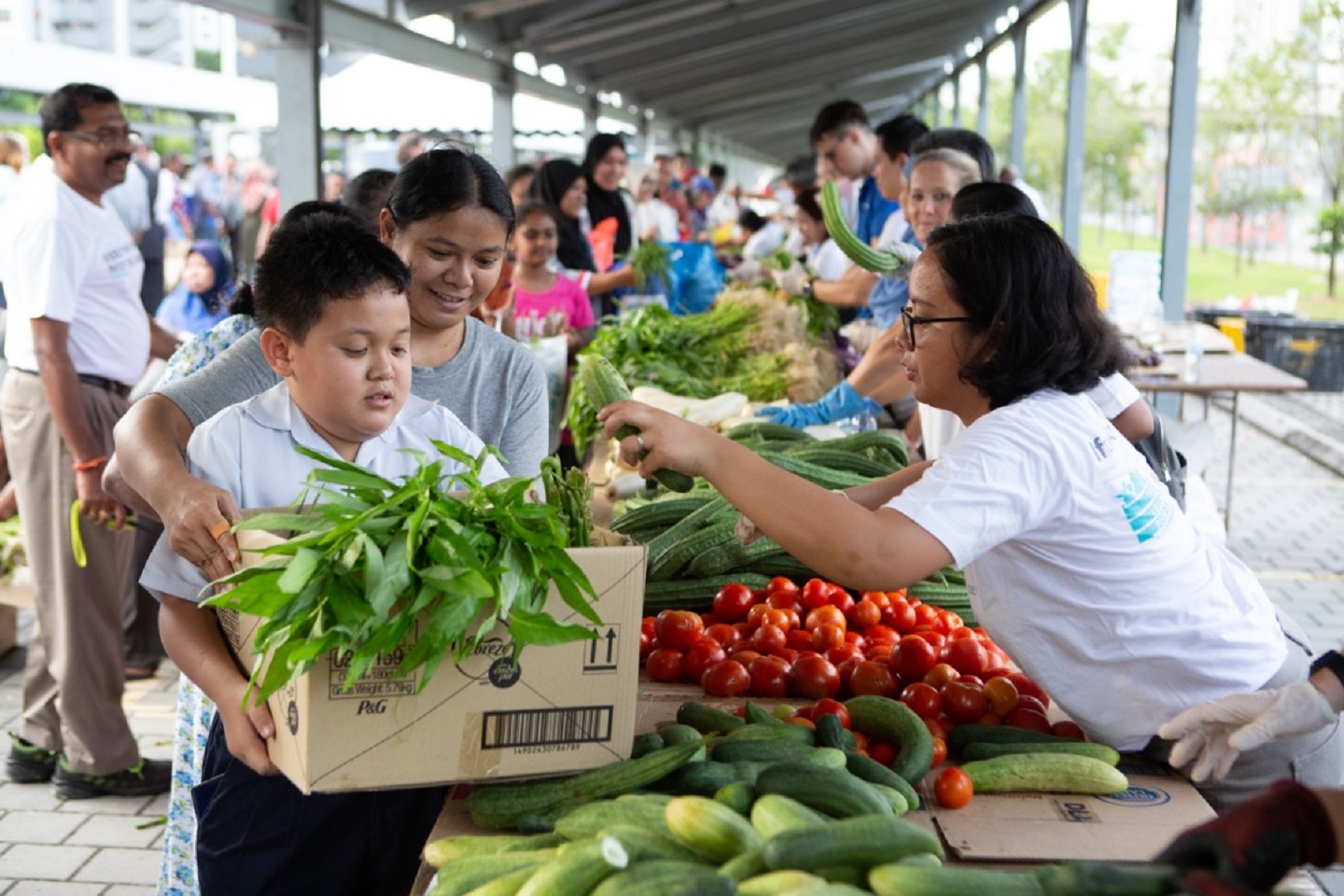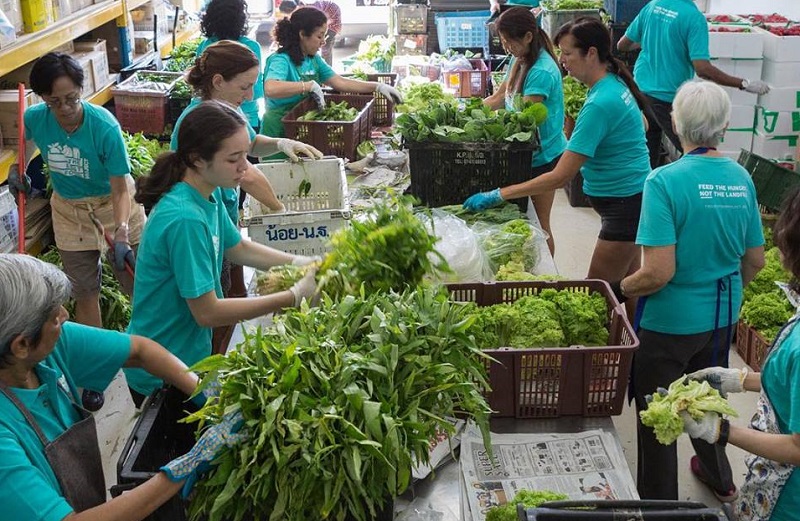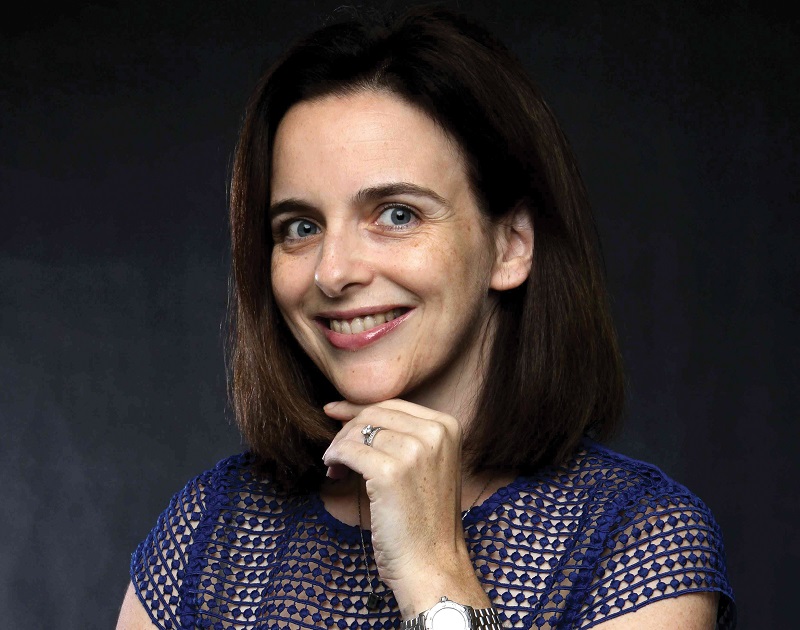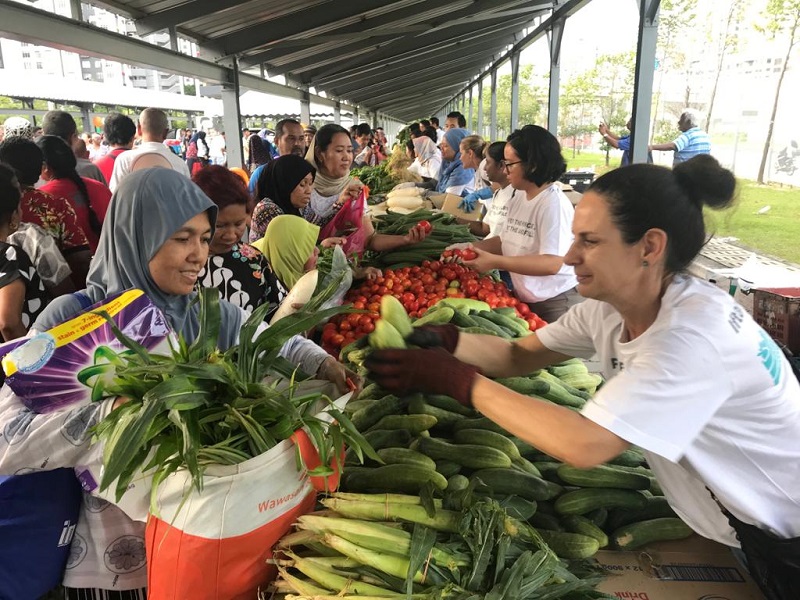
The Lost Food Project is a NGO in Malaysia that rescues quality, nutritious food that would otherwise end up in landfills (All photos: The Lost Food Project)

“I was never really into food. To me, it was nourishment but not really something to be enjoyed. Working at a news desk meant eating a sandwich in three seconds, if you’re lucky!” she laughs. “I came from that to a culture where people really, really love food … And because Malaysia has a culture of food, generosity and kindness — which is why I love it so much — people tend to overproduce, especially during festivals,” she explains.
Mooney is also the founder of The Lost Towel Project, which provides safe and sustainable income to a community of Chin refugee women living in KL via ethically produced sports towels. It was here that she discovered food was a crucial need for some of the most vulnerable communities in Malaysia. “During festive seasons, we used to ask them what they needed and they would almost always say food.”
Established in February 2016, TLFP rescues surplus food that would otherwise have prematurely ended up in landfills, and redistributes these items to those who need them the most. Giant was the first hypermarket to come on board as a contract partner, providing surplus food items free of charge. Raw food and vegetables are given out as soon as possible to maintain their freshness while dry goods are transported to TLFP’s warehouse in Kampung Attap for redistribution to charities. At the moment, the food surplus it collects supports 53 charities and non-governmental organisations as well as 33,000 low-cost housing residents in the Klang Valley.

An initial challenge faced by TLFP was misconceptions about what constituted food waste and the quality of the surplus, but it has overcome that through awareness and education drives.
“In this region, there is a disproportionate amount of food production because relatively speaking, land is quite cheap. And people love food here, that’s why there is always going to be so much … You see the extortionate amount of food — between 30% and 40% — that is thrown away in Malaysia and globally. Meanwhile, 74% of rainforests are being deforested worldwide because of the food production cycle, mainly for rearing cattle or planting palm oil, leading to [negative] impact on the community and biodiversity. We are making animals go extinct for no reason!” Mooney remarks.
Besides supermarkets, TLFP’s strategic partners include law firm Skrine, which handles all of its legal work pro bono. For a year now, TLFP has also been dealing with some essential non-food items to combat period poverty, in collaboration with feminine hygiene products producer Procter & Gamble.
Having done some work for the United Nations, Mooney opines that smaller social-cause-driven organisations are the way forward. “I found that your impact is much less when you work for a big charity. I think they are doing great and there is definitely a place for big organisations for sure, but there is so much bureaucracy … Often it is small, local level action [that helps] and that’s what TLFP does, providing ground support.”
TLFP recently revealed that it has provided three million meals since its inception, a figure derived from the average weight of meals provided by Kechara Soup Kitchen and Pertiwi. Perhaps a better gauge of its impact would be the weight of the food it has collected, which is no less impressive, seeing as the food items would not weigh the same in a cooked meal. As it stands, TLFP has collected 906,244kg of food, saving the earth a staggering 1,721,863kg of greenhouse gas emissions.
On how food waste can be combated, Mooney says, “We need to have smart people making the right decisions, particularly in government. I think the key to success is a tax break for donors … If I were running Malaysia, or the world, I’d work out what are the best incentives. I don’t think penalising people is very effective in comparison to a tax break or rebate for every food item donated by retailers and manufacturers.
“If landfill charges were higher, people wouldn’t be tossing out so much waste.”

TLFP’s ongoing initiatives include a collaboration with Shangri-La’s hotels in KL and Kota Kinabalu — which have pledged to channel part of the proceeds from meals enjoyed by their guests during the Ramadan period — and the Twenty100 campaign that invites non-Muslims to fast for a day and donate RM20, which translates into about 100 meals.
Funding is the main concern of TLFP. Besides financing the cost of running the non-profit organisation, such as the maintenance of trucks that collect the surplus food from its supermarket partners six days a week, it also urges companies to consider mentoring it in certain skill sets required to run an organisation — such as customer relationship management and public relations — as a corporate social responsibility option.
“We may not always see it but we live in dangerous times … We can’t stop what we’re doing because day-to-day problems involving sustainability are getting bigger and bigger,” says Mooney, when asked what motivates her to keep going despite having to travel between Switzerland, where her family now resides, and KL, where a committed team holds the fort while she is away. “People won’t be arguing about oil in 30 years’ — they will be arguing about water and food. The simple way to try and mitigate that is to be a bit smarter in the way we manage these resources.”
This article first appeared on May 20, 2019 in The Edge Malaysia


